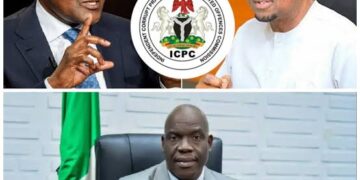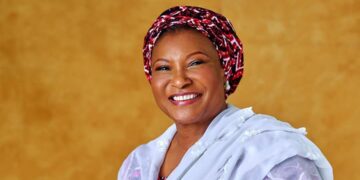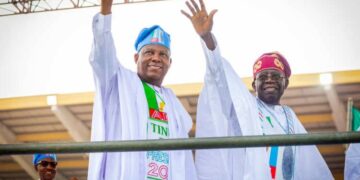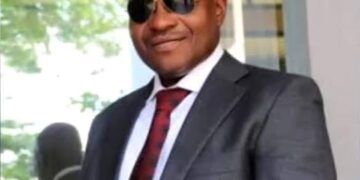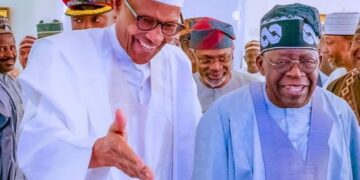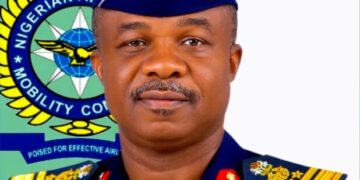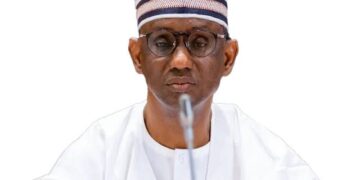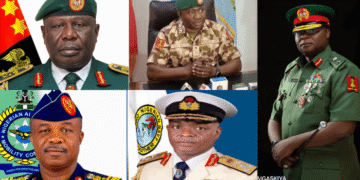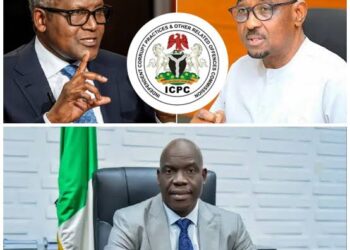BY BOLAJI AFOLABI
In strict adherence to the family’s ecclesiastical tradition, the writer, at age 10 became a chorister-in-training at St. Michael’s Cathedral Church, Kaduna; which was (back then) the headquarters of the Northern Diocese of the Anglican Communion, under the leadership of the late Bishop (Col) Titus Ogbonyomi. Aside spiritual edification, one other major benefit of being a “choir boy” was one’s introduction to words, tenses, paragraphing and vowels. These and more came through hymns, psalms, and some other books used during the course of service, prayers, and meetings. On a particular day, while rehearsing for the Sunday Evening Service, the words; Nunc Dimitis came up. Convinced that it was not an English word, the writer, after service, ran to an elder chorister to know more about it. Major Williams; who retired years later from the Nigerian Army as a Major General was the favourite of “young choristers” for many reasons. He said it is a Latin phrase that means “dismissal, departure, readiness to move on or let go.”
Given the flurry of developments in the Peoples Democratic Party, (PDP), the inclusion of Nunc Dimitis in the title of this treatise is deliberate and intentional. Derisively described as content creators, some people have concluded that the PDP, not minding its posturing and believe-us-talks have lost the steam and verve required as an opposition. Many Nigerians are wondering why it has taken almost eternity for the party to mend its terribly battered, and almost-turned umbrella. Is it acceptance of reality, sense of closure, or the embrace of a new phase of life by the PDP? The plethora of crises, and confusion that pervades numerous structures of the party is atrocious. As it is, the National Executive Council, (NEC), National Working Committee, (NWC), and Board of Trustees, (BOT) are not providing the necessary leadership. Some Zones, and state chapters are not doing any better. Sadly, the negative outcomes have percolated to the grassroots levels in some states. All this brings to mind the lyrics of the legendary Fela Anikulapo Kuti, “confusion everywhere” in one of his classics.
Indeed, as the run-up to the 2027 general elections gathers momentum, the PDP is almost comatose. From the North to the South, East and West, the party is embroiled in an unabated crisis and contestation. The varied dimensions, angles, and subject matters of these regular conflagrations defies understanding and correlation. Given the perpetuation and rapidity, some analysts have concluded that these are booby-traps and bottlenecks that may torpedo the party’s electoral fortune. A dispassionate interrogation of these challenges, which largely bothers on group interest, ego, and battle for the appropriation of party structure reveals that there is a reign of deep-seated acrimony, and increasing mistrust among party leaders. The vagaries of some of the disagreements, which are procedural appear to be self-made, crafted and orchestrated within the party can be described as “follow come” in street language. However, some party faithful allege that the chain of negative incidents is being stoked by politicians from other parties.
The PDP connodrum brings back memories of the All Progressives Congress, (APC) in 2015. After its victory at the general elections, the party walked into a phase of internal disagreements. The political thermometer became charged when Muhammadu Buhari (president-elect) showed no interest in whoever emerges presiding officers of the legislature. This became a thorny issue characterized by high-level intrigues, and high-wired politicking. It led to scheming, subterfuge, and schisms. It fouled the pleasant deodorant of the party’s electoral victory, a few months back. The political space was laden with unpredictability and suspense that the writer penned, “Senate Presidency: One Week One Trouble” in 2015. Following alliances with the “original” PDP, Bukola Saraki, and Yakubu Dogara; who were from the nPDP wing of the APC emerged the Senate President, and Speaker of the House of Representatives respectively.
To every discerning student of political history, the calibre and number of membership haemorrhage presents noticeable gloom, and potential doom for the PDP. Worse off, the discordant tunes by some of the officials on sensitive issues clearly exacerbate developments. Last week, the party’s NWC confirmed that INEC had received its correspondence about the National Convention to hold in Ibadan between November 15 and 16. The National Secretary, Senator Samuel Anyanwu did not only poo pooh the correspondence but alleged perjury as he claimed his signature was forged. How about the “indefinite grace period” given by the NWC for submission of forms by aspirants for different positions at the Ibadan convention? Dissolution of the Akwa Ibom state executive council; alleged divisions among key NWC members; discordant tunes about the Cross River, Lagos, and other states congress; disagreement over leadership structures in the South South, and South East zones, as well as in some other states. Metaphorically, the PDP, at present is marroned in a cul-de-sac.
Governors Seyi Makinde, and (to some extent) Bala Mohammed of Oyo and Bauchi states respectively, seem unfazed by developments in the party. They have differently assured party faithful that the PDP is poised to win the next general elections. Some people describe it as braggadocios and tongue foolery. Some others liken it to the ultra-positive postures of the average politician who is ever convinced that he is on the right path when people are seeing the “no road” signage. One wonders the prism for such confidence when notable party leaders and members are routinely discarding their umbrellas for some other parties, mainly the APC. Can a party that lost 4 Governors; Oborevwori, Umo, Uba, and Diri of Delta, Akwa Ibom, Enugu, and Bayelsa respectively, as well as its vice presidential candidate at the last elections pretend that all is well in its fold? With growing tales, and the likelihood of a few other Governors leaving the PDP, the days ahead are laced with uncertainties.
Fact is, since it’s electoral decimation by the APC in 2015, the PDP has been marred by the combination of pursuit of ownership; drive for absolutism, and the penchant for the elevation of personal, and group interest above that of the party. For a long time, the PDP which prides itself as a “family” has been heavily factionalized. Regardless of pretentions, party elders, leaders, officials, and members are divided along these persuasions and cleavages. Since it has festered for long, it makes unity, cohesion, and togetherness difficult. Like a barbers chair, the challenges keep revolving, just as the major dramatis personae oscillates. How the party has nose dived from its status as the “darling” of many people to playing a backbench role in Nigeria’s democracy deserves rigorous examination and analysis. Here is a party that at the peak of its dominance of national politics, a former national chairman, late Vincent Ogbulafor boasted that the PDP will be in power for 60 years. What happened to the ambitious prediction? Where and how did the party miss the mark?
Somehow, in the midst of the back-and-forth, some party faithful are still hopeful that it will wriggle out of the mess. They are optimistic that the PDP will not only turn the bend, but do well at the next elections, and gain political power from the ruling APC. While one does not begrudge party members from desiring fortune-change for the PDP, it is a daunting task, and difficult projection. Two African proverbs that, “morning determines how the evening will be,” and “from the eyes, you will know the pounded yam that will fill the stomach” remains instructive. Going by the INEC calendar, the primaries of political parties are scheduled between February and April 2026. With the plethora of crises, how the party put its house in order is open to conjectures and calculations. Looking back, one recalls the postulation of a senior member of the party that, “different structures should quickly resolve all issues to avoid implosion and the loss of members to the ruling APC and other parties.” This discussion took place in the last quarter of 2023.
Many people are not happy that the PDP is encircled with perennial and mundane issues while abdicating its responsibilities of checking the APC. Some analysts are disturbed that while the ruling party has not lived up to expectations in the delivery of services in critical sectors, the PDP has gone into a “motion without movement” mode. Disturbed by the pervasive hunger, escalating hardship, corrosive poverty, and some other challenges that are affecting Nigerians, many people blame the PDP for turning the other eye when they are supposed to call the APC to order. A few others describe the party as one filled with drama and delusion, as some of its leaders disturb the sensibilities of Nigerians with needless distractions. Sadly, many people have given up on the party, which as presently constituted cannot galvanize the required political oxygen to convince electorates about it’s readiness, let alone attracting the positive look-in that will translate to victory at the next general elections.
Perhaps, it is incumbent on the party to take some urgent steps towards ensuring that it does not go into extinction, after next year’s polls. Arguably the most organic party in the country, the PDP may have to leverage on this to salvage some credibility, and record decent postings at next year’s polls. Some party faithful alleged that the PDP Governors Forum, (PDPGF) headed by Bala Mohammed contributed to the prolonged crisis. A few others vilified Oborevwori, Umo, Uba, and Diri for abandoning the party after failing to put out the inferno they allegedly ignited. An executive member in one of the state chapters declared that, “the party is embroiled in protracted crisis largely due to the ambitions of a few people including governors, who are circumventing due processes to achieve their goals. While this is going on, some others have resolved to insist on the right things done. That is our predicament. Going forward, there has to be a point of convergence, give and take for us to be relevant in the country’s democracy.”
To achieve this, all major stakeholders including the Governors, the NWC, BOT, Nyesom Wike and other former governors, legislators, and others must deliberately and consciously adhere to the timeless counsels of some great thinkers. Mattie Stepanek believes that, “unity is strength …when there is understanding, sacrifices, collaboration, and teamwork, wonderful things can be achieved.” Lailah Gifty agrees that, “there is beauty and power in unity. We must be united in heart and mind to achieve so much.” Time, will determine if “those that matters” in the PDP will give life to these counsels. However, if the party continues to wallow in deception, self-importance, and expansion of political fiefdoms, one will not be surprised if more members dance to the 2002 award-winning song of Craig David, “I’m Walking Away” and defect to other parties.
* BOLAJI AFOLABI, a Development Communications specialist was with the Office of Public Affairs, The Presidency, Abuja.

